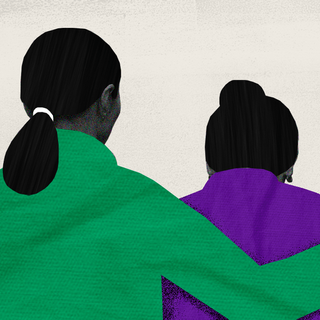On-again off-again relationships are often deemed “toxic” — and perhaps rightfully so. TV shows like F.R.I.E.N.D.S, Sex And The City,and Gossip Girl may romanticize them, or term them as “great love,” but at the end of the day, most people who have been in on-again off-again relationships will attest to how distressing they can feel. While we may have known that anecdotally already, what scientists just found out is that this distress isn’t short-lived; enduring it can impact us in the long run.
Published in Family Relations, a study explored the long-term effects of being in on-again off-relationships on a person’s mental health and outlook.
Over the course of 15 months, the researchers gathered data from 500 participants in “same- and different-sex relationships” to assess how they were impacted by the turbulence in their love lives. They noticed that break-ups followed by reconciliations were common for 33.6% of the relationships surveyed. But the greater their frequency, the worse people’s symptoms of depression and anxiety got through the 15-month-period.
Even after eliminating other stressors like intimate partner violence and uncertainty about the future of the relationship, the positive link between on-again off-again relationships and distress remained.
“…feelings of chaos or turbulence lead to these distressing feelings, increasing a sense of instability that can trigger poor mental health,” an article by the British Psychological Society (BPS) explains, adding, however, that “it’s important to note questions of cause and effect: those who felt distressed or chaotic might be re-entering relationships in order to make themselves feel better rather than being distressed by the cycling itself. How mental health or distress affects our decisions in relationships, in other words, is also worth looking at.”
Related on The Swaddle:
How a Partner’s Fragile Masculinity Can Lead to Anxiety, Less Sexual Satisfaction for Women
In the meantime, past research on on-again, off-again relationships have also warned of adverse impacts on people’s mental health. The cycle of distress such relationships trigger can exacerbate people’s insecurities and diminish their sense of self, leading them to question whether they’re simply not good enough to share a stable relationship with someone — leading to anxiety, and even depression in the long-term.
The BPS also citesresearch that found on-again off-again relationships impact “people’s confidence in their choice to get married and on satisfaction within that marriage, as well as making trial separation more likely.”
Theresa DiDonato, a social psychologist and a professor of psychology at Loyola University Maryland, described many on-again off-again relationships as a “routine roller coaster of intimacy, hurt, passion, and loss.”
But well, people do like roller coasters. The cycle of distress followed by the joy of reuniting with one’s lost love can, perhaps, feel like a heady cocktail. Or maybe, it feels like that old, tattered blanket whose familiarity induces a sense of comfort like no other — even if it may do little to protect us from the cold.
No matter the lure that on-again off-again relationships hold for different individuals, the question to ask oneself is: is it worth it, especially in the face of their long-term impact on people’s mental health?




